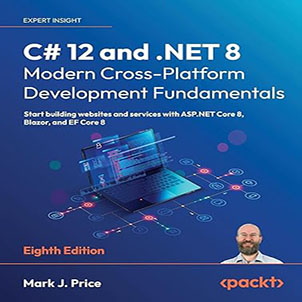Of course, we did eventually get to the coding. I wont reveal what was asked, but I can say that the resources that HR provides are not only extremely helpful, but are complete in their coverage of the coding challenge. Study everything that HR links to, complete the optional project, and you will be successful.
Since I had just read some of the material earlier that same day, I did well on the coding challenge portion. However, I got the impression that this was just a part of the interview, and that the culture fit portion is just as important. Reading some of HRs answers on Quora confirmed my intuition: they very much assess whether people will actually want to work with you. I think its safe to assume that acting arrogant and flaunting your previous achivements, no matter how great, is an express ticket to rejectionville.
I feel that I should add a sort of a disclaimer to this whole series. A coding bootcamps application / interview process alone is no predictor for the quality of their program or candidates. Lots of people have gone to App Academy and have been very successful. Im sure their program is both challenging and rewarding.
Shortly after I submitted the application, I received an e-mail confirming my submission. It also contained a calendar link to schedule my technical interview, a take-home challenge, and links to a few resources for further preparation.
In the end, I was accepted to Hack Reactor and wasted no time in accepting their offer. As of this writing, my cohort starts in two weeks.
Valentyn is a system administrator turning web developer. He is passionate about privacy and virtual currencies. In his spare time, he enjoys mountain biking, skiing, backpacking, and racing go-karts.
If you were following along from the previous two posts, youve gathered that I had 7 days to respond to App Academys offer, which meant that that was all the time I had to apply to Hack Reactor. To make my odds worse, while I had spent the last 3 or so months studying Ruby, I had no previous JavaScript experience. I decided Id spend the weekend learning the basics of JS and give it my best shot.
The next open slot on the calendar was in 3 weeks. I had five days.
This post is a continuation of my series on choosing a programming bootcamp. You can read part 2here.
Naturally, I immediately said yes. Nevermind that I hadnt reviewed all the additional prep material (I was focused on the take-home challenge), or that I had plans for that day. I figured Id spend any free time I had throughout to the day brushing up on the remaining prep work, and just do my best. Like some fairy tale, I had until midnight – the interview would be at 9pm, PST.
Although this bit was optional, I figured it would give some credibility to my application and help me prepare for the interview. Considering I was right on both counts, my advice to potential applicants is: absolutely strive to complete this challenge. Its well worth it.
I, for one, am excited to be part of it and cant wait to see whats in store.
I think I lost a lot of hope at this point. But, I summoned a bit of courage and shot off a pretty long e-mail to admissions explaining my predicament. I concluded with a promise to review all the new material from the confirmation e-mail and that I would complete the take-home project. According to HR, this should take no more than 20 hours, and I figured Id pull an all-nighter if I had to.
I immediately connected with the interviewer – and we spent some time talking about my background, my predicament with the AA deadline, and a few other topics. This was a conversation, not a test, and I hadnt yet been asked to write a single line of code. I was at ease and the interview felt very natural.
I was thrilled to get the e-mail so quickly and I went to schedule my interview right away. I remember thinking heh, this is going to be easier than I thought. Except, of course it wasnt.
While I was working on the project, I couldnt help but keep checking my inbox for a reply from admissions. It hadnt come, so I followed up on the promise I made in my lengthy first e-mail and attached the completed code. This was my shot, and there was nothing further to be done. I hoped, and I waited.
Sure enough, someone from Hack Reactor got in touch with me the next day. He had some time to give me a technical interview … that night.
The other notable thing about the application is not what youre asked, but rather, what you arent. You see, HR doesnt care about your gender, age, SAT score, job experience, or college GPA. App Academys application felt like applying to college all over again. Hack Reactor asked for my name and e-mail address. I was immediately intrigued.
The application itself is just a JS console window. You are asked to populate a few basic data structures with your information and call a function that pops up a confirmation window. There is nothing difficult here, but the process serves to both filter out those who havent bothered to learn any JS, and reward those who have. Its oddly satisfying to make things happen with code for the first time and to get immediate feedback – if you are successful, youve just applied to Hack Reactor. It definitely put a smile on my face.
Ill just go ahead and say this up front: the interview experience itself was night and day compared to App Academy. I was actually asked to turn on my webcam, something AA didnt bother with. All it revealed was my dimly lit office and a t-shirt that Id never wear outside, let alone to an interview, but still. It was a nice touch.
I didnt expect an immediate reply, so I called it a day and decided to tackle the challenge the next day. Like the application itself, this was engaging and immediately rewarding. You are given a plain HTML page and have to follow a breadcrumb trail laid out in the developer console to transform it into a functional chat client. This involved concepts I wasnt familiar with: jQuery and AJAX. I buckled down and started googling.
That being said, I think that Hack Reactor is changing the old established paradigm of education itself. The interview process is fun and engaging, not a chore. Old-school predictors of success like SAT scores and GPAs are completely disregarded in favor of culture fit and coding proficiency.
Thankfully, HR publishes theresourcesneeded to prepare for their admissions challenge. Since I had so little time to prepare, I didnt attempt to find or review any material beyond what HR indicated was needed. While this made me a bit nervous, it turned out that between Code Academy, Eloquent JavaScript, and a few Coderbyte problems, the coverage of the basics was more than sufficient to pass the challenge.
Like any admissions process, Hack Reactors starts with an application. It was immediately obvious that a lot of thought went into the whole process, and that this probably wasnt the first iteration.
I didnt keep track of exactly how long it took me to finish the project, but it was the better part of a whole day. The complexity here is just right: while the problem might look daunting to a newbie, the concepts themselves are fairly basic, and the resources to put them together are a well-worded search query away. I have to say that HR did an awesome job with this challenge and I genuinely enjoyed inching closer to a solution.



